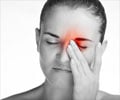Excess daily consumption of caffeine or caffeinated beverages can trigger a migraine attack in persons who suffer from episodic migraine even after taking into consideration other potential factors such as lifestyle and stress.
Highlights:
- Excess daily intake of caffeine or caffeinated beverages can trigger a migraine attack in persons with an episodic migraine even after taking into consideration other potential risk factors such as stress and lifestyle
- In persons with episodic migraine, three to four servings of caffeine per day can trigger a migraine headache but if intake is limited to one to two servings daily the risk is not increased
- Migraine is a debilitating headache disorder and affects nearly 1.04 billion adults worldwide and one of the most common conditions that contribute to absenteeism from work, loss of productivity as well as placing a huge burden on the healthcare system
The findings of the study appear in the Elsevier publication, The American Journal of Medicine.
TOP INSIGHT
Three to four servings of caffeine per day can trigger a migraine headache, but not so if intake is limited to one to two servings daily.
Read More..
Can Daily Variations in Caffeine Intake affect Migraine Occurrence?
It is widely believed that caffeine can trigger migraines as well as provide pain relief after the onset of the headache, but there is insufficient research on the association between daily variations in consumption of caffeine and occurrence of migraine.Nearly 87% of Americans take caffeine daily, the average intake being about 193 mg per day. Other factors such as lifestyle factors such as stress, excess alcohol intake, poor sleep and lack of physical activity and menstruation are known to cause migraine. However, the role of caffeine is more complex since its influence depends on the frequency and dosage of intake. In addition, caffeine also plays an analgesic role in migraine.
The current study hopes to provide an answer to how variations in caffeine intake influence migraines.
Role of Frequency & Dose of Caffeine in Provoking Migraine
- The study included data of 98 adults known to suffer from episodic migraines
- Study volunteers were required to maintain electronic diaries noting down details of their caffeinated beverage intake twice daily for six weeks, as well as provide details on other lifestyle factors, nature, timing and duration of the headache
- The research team compared the incidence of migraines on days the participants drank caffeinated beverage to the days they did not
- Preliminary data suggested that participants typically had an average of five headaches per month
- According to baseline data, 66% drank 1-2 servings of caffeinated beverages daily and 12% drank three or more cups daily
- During the study period of six weeks, on average, participants suffered 8.4 headaches.
- Also everyone reported drinking caffeinated beverages at least once during the study period with a weekly average of 7.9 servings
"To date, there have been few prospective studies on the immediate risk of migraine headaches with daily changes in caffeinated beverage intake. Our study was unique in that we captured detailed daily information on caffeine, headache, and other factors of interest for six weeks," says principal investigator of this study, Suzanne M. Bertisch, MD, MPH, belonging to the Division of Sleep and Circadian Disorders, Brigham and Women's Hospital and Harvard Medical School, Boston, MA, USA.
Future Plans
More studies are required to analyze the potential effects of caffeine on-time duration of onset of symptoms and possible interactions with other factors such as sleep, lifestyle stress, and migraine.In conclusion, consumption of three or more servings of caffeinated beverages per day can trigger migraine in persons with episodic migraine and it is advisable to limit the intake to 1-2 servings per day to avoid this risk.
Source-Medindia
 MEDINDIA
MEDINDIA





 Email
Email










